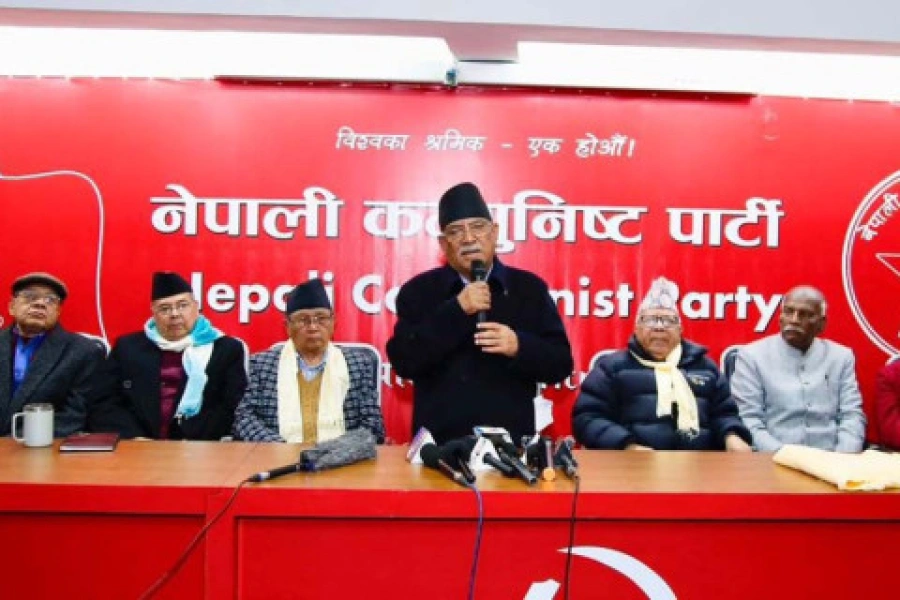Valentine's Day is just around the corner, and it's that time of the year when love is in the air and red roses are in high demand in Nepal. But this year, there's a twist in the tale. The government has decided to ban the import of fresh roses from abroad, just days before the most romantic day of the year. The decision made by the Plant Quarantine and Pesticide Management Center under the Ministry of Agriculture and Livestock, has come as a surprise to many, while it is being applauded by many others as a step in the right direction. The government has cited "special reasons" for this decision and has directed the various 15 subordinate border offices not to issue import permits. But it is not difficult to understand that the move is aimed at conserving the country's depleting foreign currency reserves and making Nepal self-reliant in floriculture in the long term.
In fact, the decision to ban rose imports is a bold move and a much-needed step towards the development of the country’s ailing floriculture sector. The country’s agriculture sector has been lagging behind for years, mainly due to unchecked import of flowers and lack of supportive measures on the part of the government to farmers. The ban on rose imports is expected not only to boost the country's agriculture sector in general but also create job opportunities for a large number of people at home. By cultivating their own roses, the people will not only be able to contribute to conserve foreign currency reserves but also improve the quality of roses available in the market. Moreover, the ban will help reduce the dependence on foreign countries and promote self-sufficiency. Government statistics show that Nepal imports flowers worth over Rs 110 million each year, mainly from India. The amount can be saved if we are able to encourage farmers to be involved in flower farming.
Himalaya Airlines conducts annual "Step Towards Education" camp...

It is said that a large number of floriculture entrepreneurs in the country switched their businesses in the aftermath of COVID-19 pandemic and they are still reluctant to involve in the same business. Floriculture Association Nepal (FAN) has maintained that the government’s incentives and supportive policy measures could help make the country self-reliant in flowers, bringing in more farmers in this sector. It is said that floriculture has expanded already in 44 districts in the country. Such policy measures can further expand the flower cultivation in other districts. This will significantly help the country’s economy by reducing the outflow of foreign currency. The Nepalese economy is heavily dependent on remittances, and the ban on rose imports will help save the country's foreign currency. Needless to say, the ban on rose imports has also come as a ray of hope for the Nepalese farmers. The cultivation of roses has been a neglected sector in Nepal, and this ban could give farmers the opportunity to grow and sell their own roses. This will not only provide them with a source of income but also help revive the country's agriculture sector.
Of course, the ban on rose imports has created some concerns among a section of people in Nepal. The demand for roses is usually high during Valentine's Day, and many fear that the ban will result in a shortage of roses in the market. But the government has assured the people that the ban is only temporary and that it will help improve the quality of roses available in the market. In this sense, the ban on rose imports can be seen as a step in the right direction for the development of the Nepalese floriculture sector. It will not only help conserve the country's foreign currency but also create job opportunities for a large number of Nepalese people and revive the country's floriculture sector. The ban may cause some inconvenience in the short term, but in the long run, it will benefit the country and its people. As we celebrate Valentine's Day, let's support the government's decision to ban rose imports and hope that it will lead to a brighter future for the country and its people. A short-term pain for individuals may mean a long-term gain for the country and its economy.






































